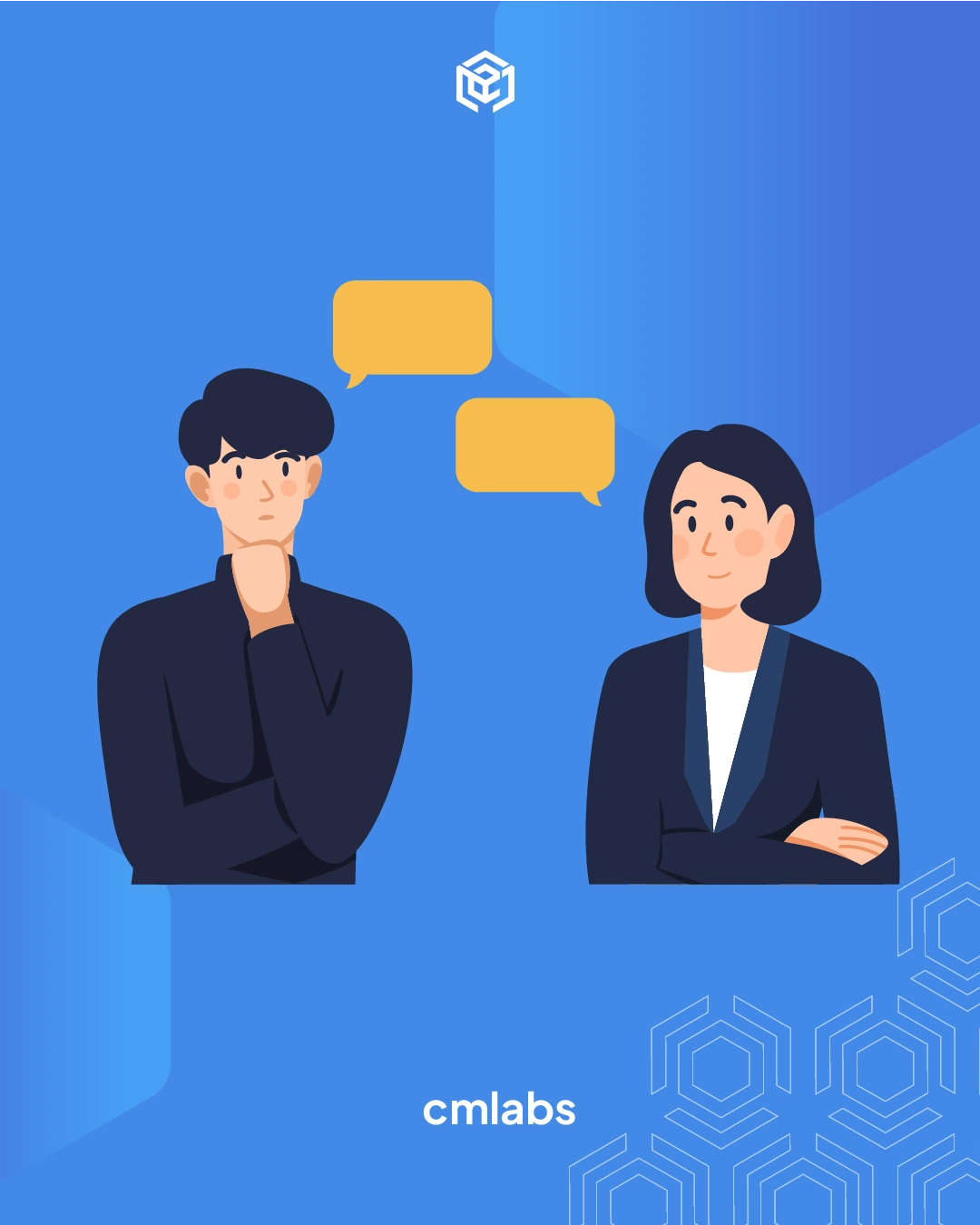We use cookies
This site uses cookies from cmlabs to deliver and enhance the quality of its services and to analyze traffic..
SEO SERVICES
Conduct in-depth technical website audits, strategically develop website projections, and increase your website authority.
ASO SERVICES
Elevate Your App’s Presence with Our Expert ASO Services – Boost Visibility and Drive Downloads!
WRITING SERVICES
We offer a variety of writing services to suit different business necessities. Reach broader audiences or lead specific industries? We've got you covered!
Get relevantly positive media exposure from bloggers and online publishers to increase your brand mentions on search engine results pages.
SEOlutions
A unified source of truth!
SEO & Digital Maternity Solution
SEO & Digital Maternity Solution: Leverage Cross-Platform Insights to Elevate Your Strategy with Expert Consultation
SEO & Digital Maternity Solution
Data Solution options:
Starting from Rp200 mio
Reinventing how a company get creative treatments
A new way to get your creative needs done. Agile team, efficient cost, and expedient way in a flexible yet scalable subscription plan!
Creative-as-a-Services
CaaS package options:
Based on Subscription
Pioneer in digital marketing software powerhouse
We’re excited to unveil our new range of Tech Solutions designed to drive your digital success. Whether you’re looking to enhance your website’s performance, streamline your tech stack, or unlock deeper insights from your data, we’ve got you covered.
Starting from Rp250 mio
Our Clients
Research and innovation center for digital transformation
Digital marketing combines technical skills and business knowledge at every stage. For marketing teams, improving budget management efficiency is crucial, as time is an invaluable resource that should be used wisely. At Sequence, we are dedicated to empowering you to optimize efficiency and strategic planning, ultimately enhancing the impact of your digital marketing efforts.
Subscription-based (IDR1,800/keyword)
Our Clients
BeyondSEO
References
SEO Tools for Webmasters
SEO Tools for Writers
SEO Tools
FIND THE SUITABLE PARTNERSHIP FOR YOUR COMPANY
Check out which cmlabs partnership program suits your company
WHITE LABEL SEO
for CorporateYour company is granted exclusive partnership rights to provide SEO services to our important clients, and we will provide a dedicated backend team to support your efforts.
AFFILIATE PROGRAM
for BizdevA new affiliate program is being introduced for skilled marketers and individuals with strong networks, offering commissions of up to 7% for generating profits independently.
DIGITAL AGENCY
for Marketing Partnerscmlabs is an essential partner for digital agencies, providing a unique selling proposition in Search Engine Optimization (SEO).
BACKLINK PARTNERSHIP
for Media / BloggerWe have a vast database of bloggers and media outlets across Indonesia, categorized by region and media type, giving our clients an edge in managing their media and SEO activities.
OFFICIAL TRAINING
We provide ongoing professional development and support to SEO professionals to ensure they are equipped to meet market demands.
JOIN AS CONTRIBUTOR
for Content WriterGreat opportunity for SEO Writers around the world. T&C applied!
ACADEMIC PARTNERSHIP
Through partnerships with universities in Indonesia, cmlabs has helped align academic curricula with industry demands.
Partnership
Sector & Industries
Tell us your SEO needs, our marketing team will help you find the best solution
As an alternative, you can schedule a conference call with our team
Schedule a Meeting?Contact
Survey
We use cookies
This site uses cookies from cmlabs to deliver and enhance the quality of its services and to analyze traffic..
Published at Jun 04, 2020 17:06

The following article comes from a senior data scientist with an interesting and innovative mindset. Let's get into his thoughts, through his writing below.
As a data scientist, I was educated with two beliefs:
The first belief treats data as raw material: the data scientist prepares the data and business users will process it again for subsequent users such as clients.
The second belief treats data as material for decision-making. The first belief positions the data maker as a neutral party, the data is adjustable according to user needs.
The second belief is more "interesting", the data scientist is the final result determinant of the data presentation that will be used by decision-makers.
Note:
"Beliefs" are the methods (manhaj) created after consideration and research. Then, someone will go through it and make it a clear guide to its limitations (parts) which are built on principles and rules.
Having an audit process like in the first belief is ideal because there are two teams with two mindsets to adjust needs before reaching the decision makers.
This is very helpful because cognitive biases are filtered twice. The data interpreter would understand how the data generated has a certain bias towards the presentation of data, that's why it is sometimes insensitive to how other parties will react to the data.
The data team will have a contextual understanding of the displayed data and sometimes forgets that there is a background they forget to tell, the presence of a second team - for example, the Marketing Team - helps direct the key message to convey in a more conical manner and in accordance with the needs of the final decision maker.
This is a kind of Front-end versus Back-end pattern that will work well if both understand the knowledge of their respective sectors.
However, if one party does not understand the decision makers' wishes, it will be very difficult to reach an agreement on the data to be presented, or worse, the data requested is "unseen".
Therefore, the second belief creates difficulties, especially for decision makers who actually do not understand how to communicate what they want - this often happens. The result is unproductive feedback that sometimes affects the color of the graph used.
This is different in the case where the decision-makers already have concepts and key messages to convey, the data maker here acts as a consultant for decision-makers. Helping them determine what data is needed and how to present it.
The most dangerous thing in this belief is the "yes man" data scientists, the data that follows the wishes and imagination of the decision maker will produce the same imaginative decisions.
If the data is meant to be displayed for public consumption or client pitching, it might not be a problem. However, if the data is used internally, obviously, don't claim that decision as data-driven.
Not only for tech companies but if we aim to empower data as a determinant of company development, there must be aware of data literacy from top to bottom, data-driven is an ecosystem, not just a linear process.
WRITER PROFILE
ACTIVE CONTRIBUTORS IN CMLABS, SINCE 2020
Andaru Pramudito Suhud is an alumni of the University of Indonesia with more than 6 years of work experience as Data-Scientist. Currently,y Andaru is a Data Consultant and resolves the problems of multinational companies in various countries.
He is an intelligent professional with broad and deep insight. You will find his writing and thoughts again in the cmlabs blog.
Thank you for taking the time to read my article! At cmlabs, we regularly publish new and insightful articles related to SEO almost every week. So, you'll always get the latest information on the topics you're interested in. If you really enjoy the content on cmlabs, you can subscribe to our email newsletter. By subscribing, you'll receive updates directly in your inbox. And hey, if you're interested in becoming a writer at cmlabs, don't worry! You can find more information here. So, come join the cmlabs community and stay updated on the latest SEO developments with us!
WDYT, you like my article?
Read cmlabs's other thoughts via the link below
Written by cmlabs at 16:00 Jul 11, 2024
Category: Business
Written by cmlabs at 16:00 Jul 11, 2024
Category: Business
Written by cmlabs at 15:49 Jun 12, 2024
Category: Writing
Written by cmlabs at 13:37 Oct 11, 2023
Category: SEO
Written by cmlabs at 16:26 Sep 29, 2023
Category: UI/UX
Tell us your SEO needs, our marketing team will help you find the best solution
As an alternative, you can schedule a conference call with our team
Schedule a Meeting?



cmlabs Jakarta Jl. Pluit Kencana Raya No.63, Pluit, Penjaringan, Jakarta Utara, DKI Jakarta, 14450, Indonesia
(+62) 21-666-04470These strategic alliances allow us to offer our clients a wider range of SEO innovative solutions and exceptional service.

Psst! Hey there, SEO Stats and Tools SEO company! If you've ever planned of conquering the Indonesia market, you've come to the right place!